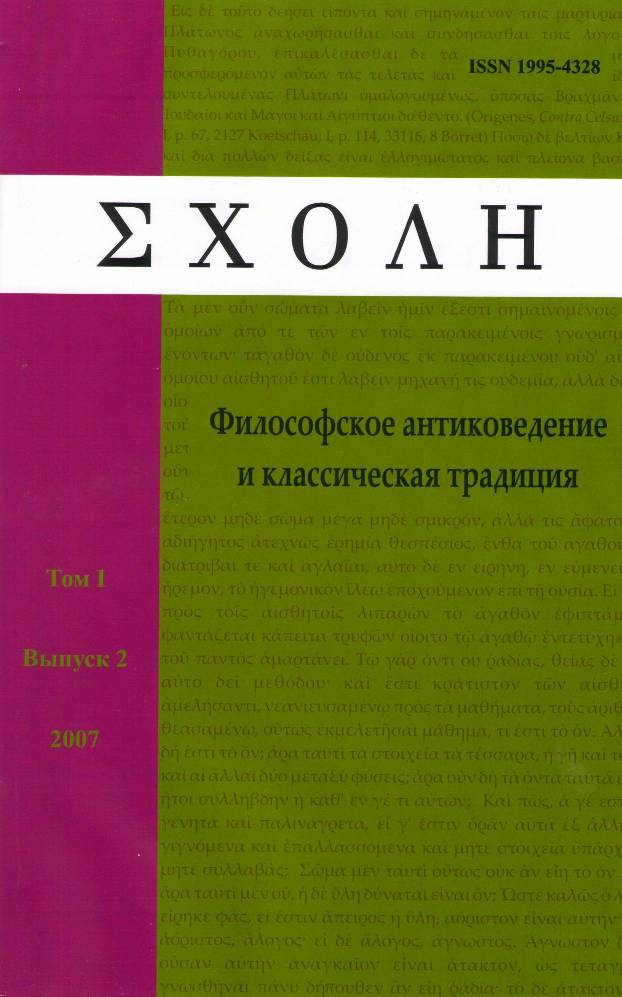Скепсис и парадокс: проблема предпосылок скептицизма у Платона и античная традиция парадоксов
Scepsis and Paradox: The Problem of Skepticism in Plato and the Ancient Tradition of Paradoxes
Author(s): Roman Svetlov, Konstantin ShevtsovSubject(s): Logic, Ancient Philosphy
Published by: Новосибирский государственный университет
Keywords: Skepticism; Academy; Plato; Liar paradox;
Summary/Abstract: The subject of the research is the question of what texts of Plato could become a stimulus for the formation of skeptical ideas in the Academy. Can we, in particular, raise the question of the presence in the texts of Plato of something similar to the principle of the “epoche”, which is the most important methodological sign of skepticism? Can be compared with skepticism the elenchic strategy of Socrates? In our opinion, there are a number of moments in the works of Plato, which brings him closer to skeptical discourse (although this does not make him a skeptic). We dwell only on two of them. The first is the ability of the protagonists of his dialogues to hold in their arguments the two opposite sides of the subject in their undoubted difference and, at the same time, in mutual necessity. This is the Platonic dialectic in its true expression, examples of which we see in the Sophistes and the Parmenides. The second specific aspect of Plato's thought is in the formulation by Plato of a number of logical paradoxes. In its classic version, it became known, however, a little later, in the works of representatives of the Megarian school. We shall deal in more detail with the paradox of the liar, or “the thesis of Epimenides”, which is often seen as a classic example of a self-referential statement. The article will show analogies to the paradox of the liar in Plato's texts. The key point is the last argument from the Theaetetus, where Socrates examines the definition of knowledge as a true opinion with the addition of a specifying attribute (Thaet 201c-208d), as well as the 7th and 8th hypotheses of the Parmenides (Parm. 164b-166c). It seems to us that this moment of the Platonic dialectic also turns out to be a definite resource for the future “skeptical turn” in the Academy. Especially in the situation when the dialogues of Plato were discussed in terms of interest in the arguments of Pyrrho and the Megarians, for whom paradoxes were one of the important methodological tools.
Journal: ΣΧΟΛΗ. Философское антиковедение и классическая традиция
- Issue Year: XIII/2019
- Issue No: 2
- Page Range: 683-694
- Page Count: 13
- Language: Russian

